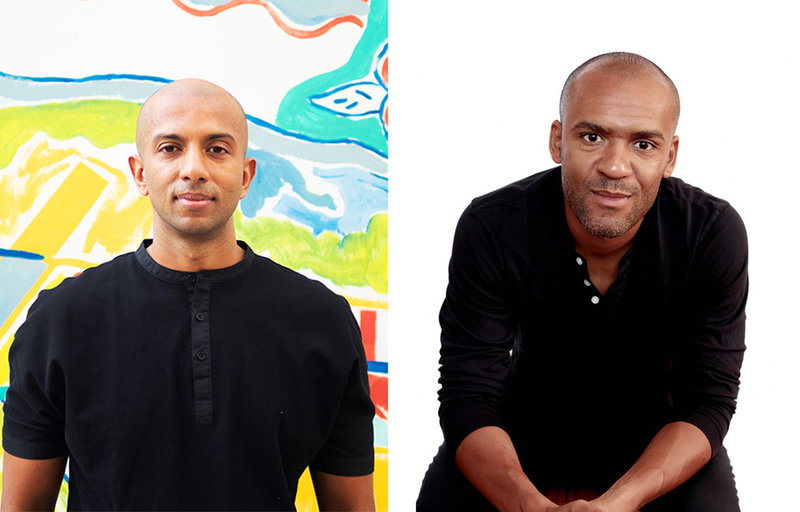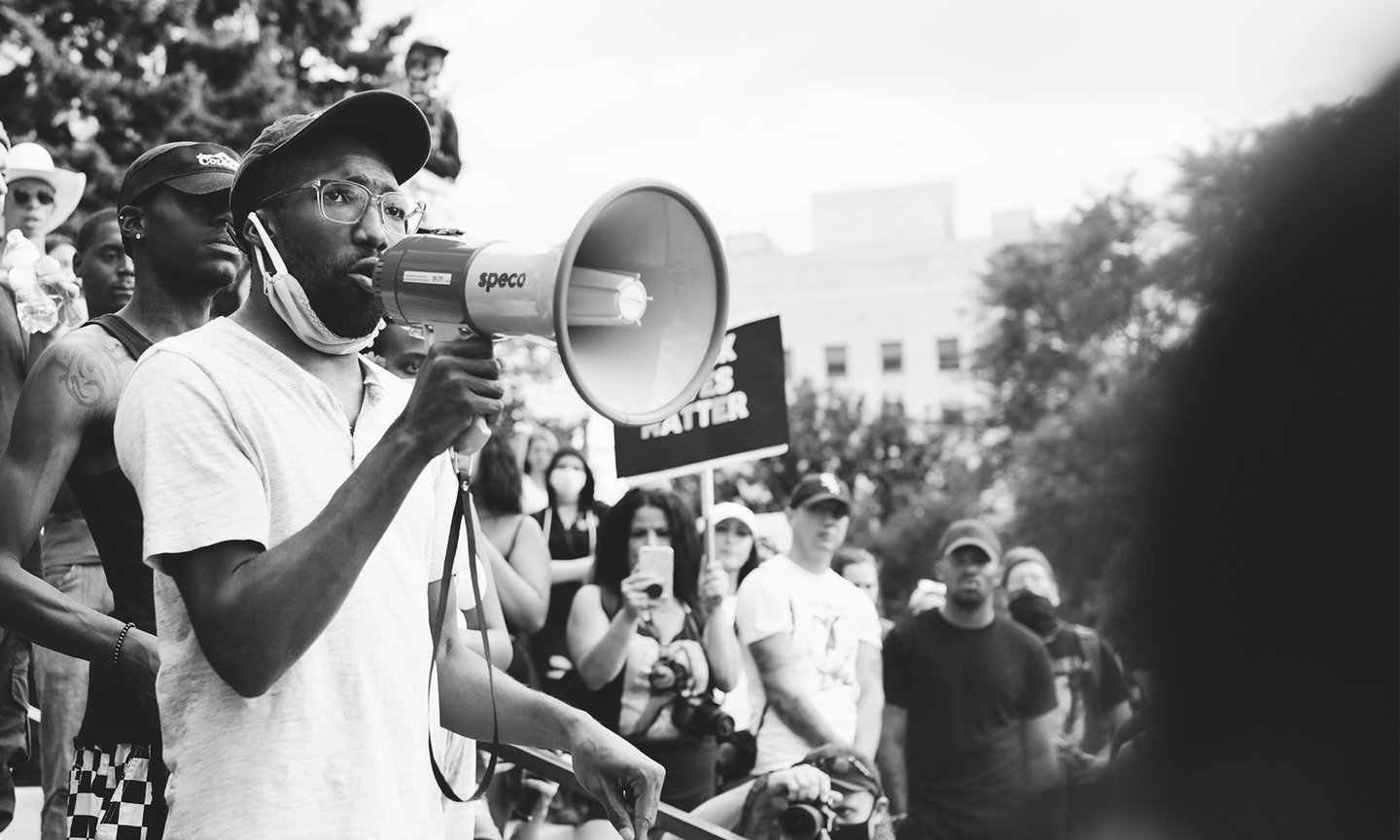Diversity
Business and Technology in the Aftermath of Black Lives Matter
The Black Lives Matter protests that sparked around the world in the aftermath of the killing of George Floyd have prompted a host of conversations about the treatment of people of colour in society. Lucy Ingham hears from WhatsApp’s Eshan Ponnadurai and Sylvain Labs’s Alain Sylvain about how things are changing and what steps businesses need to take
It shouldn’t have taken the death of a Black man at the hands of the police to get the world talking about race, but the killing of George Floyd, and the subsequent Black Lives Matter protests have done just that.
In what seems like a historic moment, the genuine diversity credentials of businesses are being examined in a manner unthought of us just months ago, and there is a growing and genuine expectation among consumers for businesses to do better.
The movement has caused genuine soul searching for millions, but it has also forced industries to acknowledge uncomfortable truths about themselves. And in the case of technology, the fact of the matter is that the industry is predominantly cis male, white and Asian.
For some, the realisation has been quite depressing. For others, particularly for some people of colour, it hasn’t been a realisation at all – it’s been obvious all along – but there has been skepticism it will produce any meaningful change.
But for many, the movement that is now beginning to occur is a positive sign of things to come.
“It's a good moment in time in the sense that I think there is more understanding and more awareness around diversity and how that plays across your business,” says Eshan Ponnadurai, global head of brand and consumer marketing at WhatsApp, during a talk at Collision from Home.
“It's not just the people you hire, the people you work with. It's the expertise you're bringing into your company and what you're doing. And I feel like all boats are rising at this point, which I think is a really good thing. And in that sense, there's positivity in what's happening in culture right now.”
Ponnadurai is joined by Alain Sylvain, founder and CEO of brand strategy and design consultancy Sylvain Labs to answer attendee questions on the topic and explore how technology is a tool of culture, and he too is seeing a change in clients.
“This is an interesting time where big clients are beginning to think about who they work with and being more critical about the partners they're working with,” says Sylvain. “And as a Black owner of a consultancy, it's been interesting what the last couple of weeks have been like.”

Eshan Ponnadurai (L), Whatsapp and Alain Sylvain, Sylvain Labs
Technology’s role in the Black Lives Matter movement
As much as technology can often be seen as ignoring issues relating to the Black Lives Matter movement, Sylvain argues that it played a vital role in bringing recent events to the fore.
“The moment we're in now, Black Lives Matter relied heavily on technology, not only on social media and mobilisation, but if you think about it, the smartphone has been the ultimate response to people under pressure from the cops,” he says.
“Technology is absolutely the catalyst for social change, and we're starting to see it with Black Lives Matter.”
“It was the eight minutes and 46 seconds of seeing George Floyd’s killing, and that is only because of the chips in the iPhone that captured it and the social media machine that allowed it to be seen by so many people around the world.
“And that was true with Michael Brown; that was true with a number of moments throughout history and you can actually go all the way back to 1962. What really triggered the civil rights movement, even before Rosa Parks refusing to get to the back of the bus was the image of Emmett Till, killed, in his casket on the cover of the newspaper.
“That whole moment is a technological moment: newspaper mass distribution, a media empire going around the world, the photography, able to develop it and put it out there. Technology is absolutely the catalyst for social change, and we're starting to see it with Black Lives Matter.”
Improving diversity in businesses
As much as the communication surrounding Black Lives Matter has largely been in the digital space, it is beginning to spark real-world changes, particularly when it comes to businesses that shape technology and contribute to our global culture.
“I don't think any company has it figured out in this moment,” says Ponnadurai. “And I don't know a company that has not had an opportunity to rethink their business or rethink a part of their business and how they operate, whether it be ethically or operationally in this moment.”
But one of the biggest barriers to meaningful change is arguably tokenism, with many businesses failing to see that token appointments are not an adequate response to this issue. But for Sylvain, exactly how to tackle this problem remains “an open question”.
“Part of me feels like we can create very rigid rules for our partners, meaning certain rules around how diverse their employees are, you know, do they have senior leadership at the table? Do they have best practices, fair practices when it comes to labour and so on?” he says. “So I'm exploring that, and we're starting to put that to work.
“I believe we have the power to move even the greatest violators from the inside out through baby steps.”
“But at the same time, I believe we have the power to move even the greatest violators from the inside out through baby steps. And actually, maybe if we work with companies that are the greatest violators of the fundamental beliefs that I have – so maybe they are unfair when it comes to issues related to diversity inclusion – if we work with them, we have a greater potential to change them. And if nobody works with them, then they're not going anywhere.”
While he is working with individual companies on this issue, Sylvain sees his responsibility as “bigger than that organisation”.
“I'm really thinking about how can we move society forward as best as possible and those standards we hold our clients to are not always perfect and we revisit that.
“There's one client of mine right now that in any other situation you really consider troublesome, when it comes to their treatment of the environment and the way they treat their employees and so on. But we've been working with them and changing them from the inside. So it's a tough negotiation. But you need to look at it case by case.”

Image courtesy of Taylor Turtle on Unsplash
The role of education
Of course businesses, particularly in the technology space, recruit in part based on education. And here there are also issues with a lack of representation of people of colour, and particularly Black students, at top-tier educational institutions.
For Ponnadurai, this is an issue that needs to begin with the diversity of the educators.
“I think one thing that universities have to do far more is ensuring they have a more diverse educator population,” he says, “and that diverse voices are educating the leaders of tomorrow in your place of study.”
“Why is diversity an issue now and why does it take someone to be tortured for that to be top of mind?”
For Sylvain, it highlights the lack of action that has been taken up until now – both for educators and businesses.
“My question is: why weren't they doing anything before?” he says. “That's one big obvious question. So why is diversity an issue now and why does it take someone to be tortured for that to be top of mind?
“But my belief is that if you believe, fundamentally, that if inclusion and equity is important, you won't question what to do.
“Is diversity inclusion fundamental to your organisation? Is part of the business or incentives and compensation tied to diverse and inclusive environments? If so, you wouldn't question what to do.
“So I think that the challenge is to weave these sorts of priorities into the agenda of the organisation.”
Cover image courtesy of Mattia Faloretti on Unsplash
Back to top